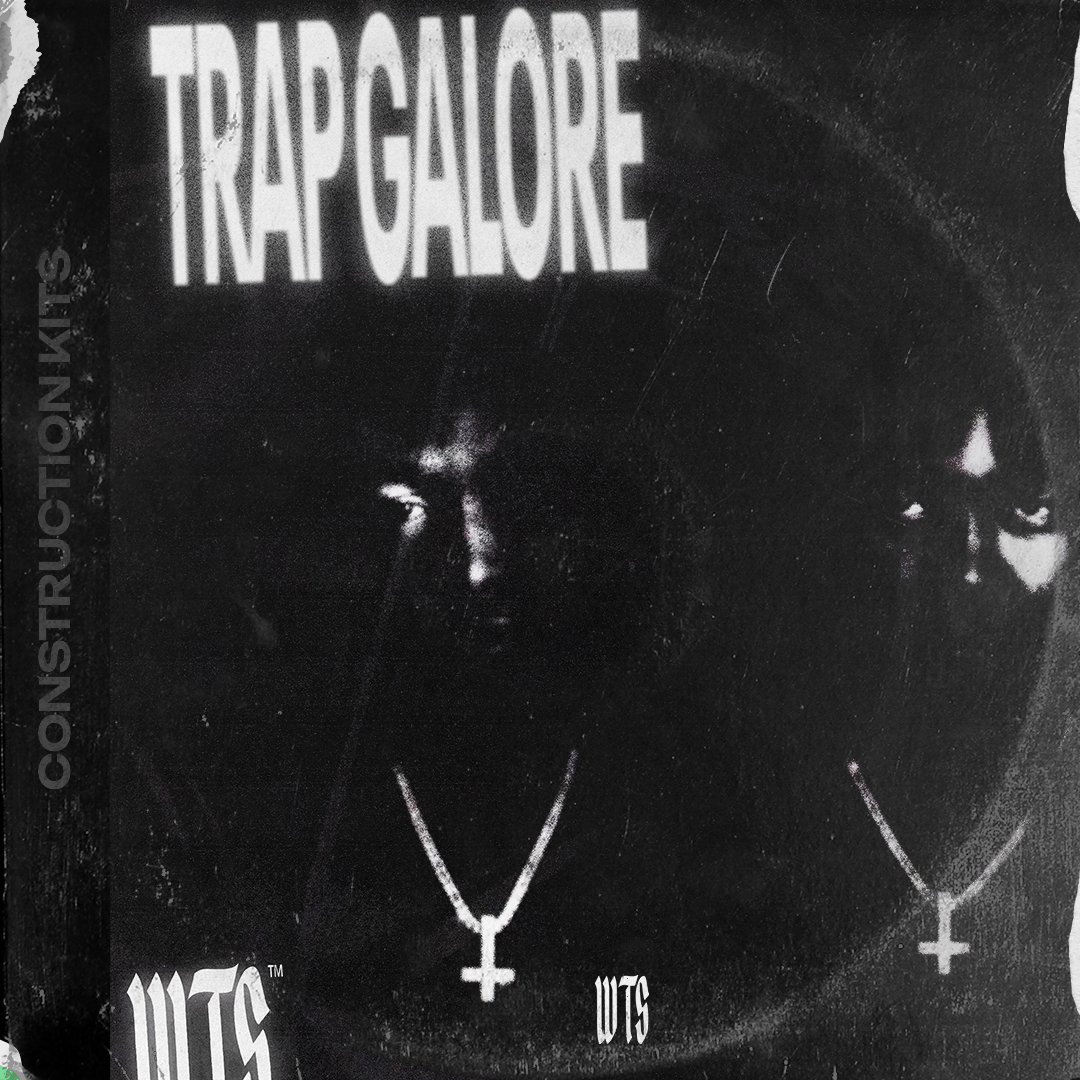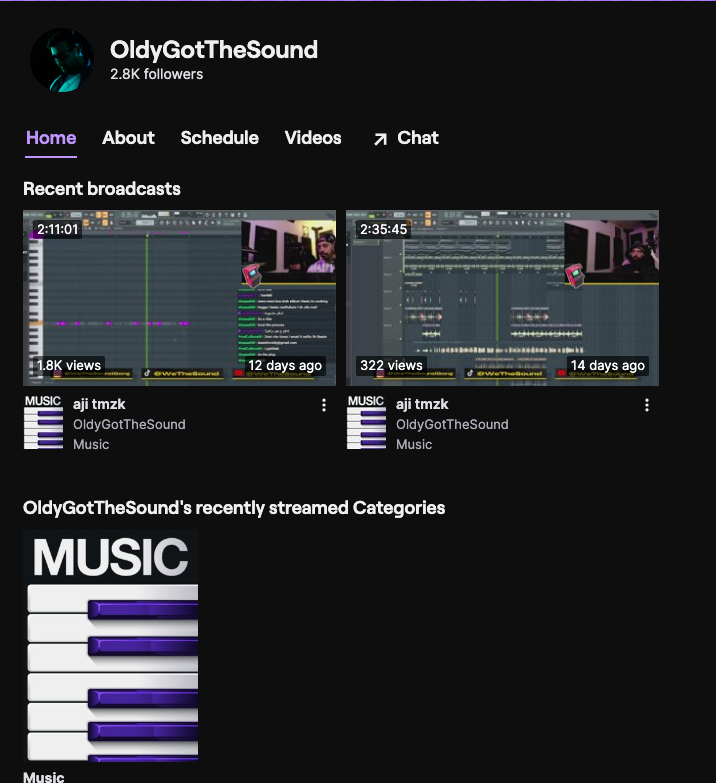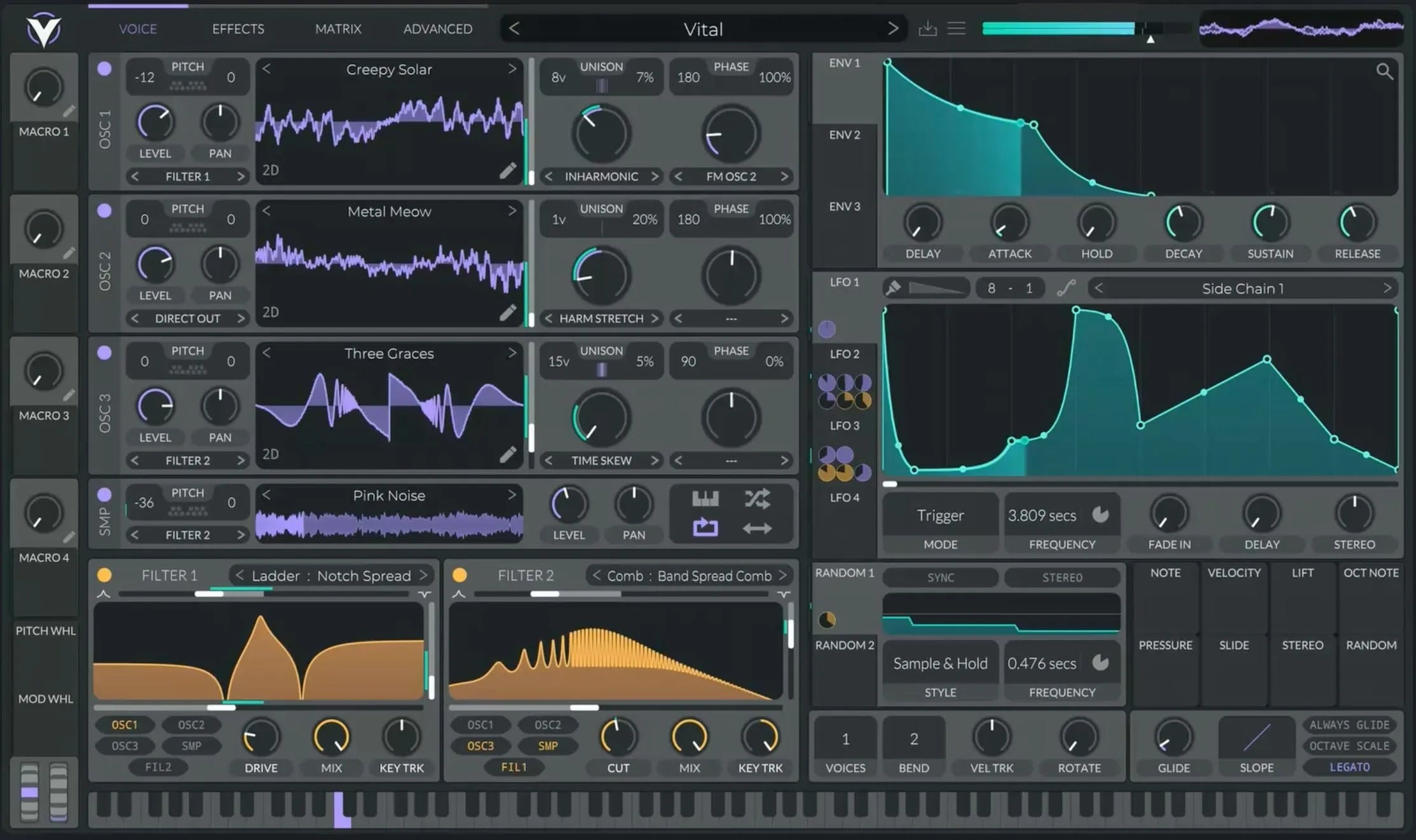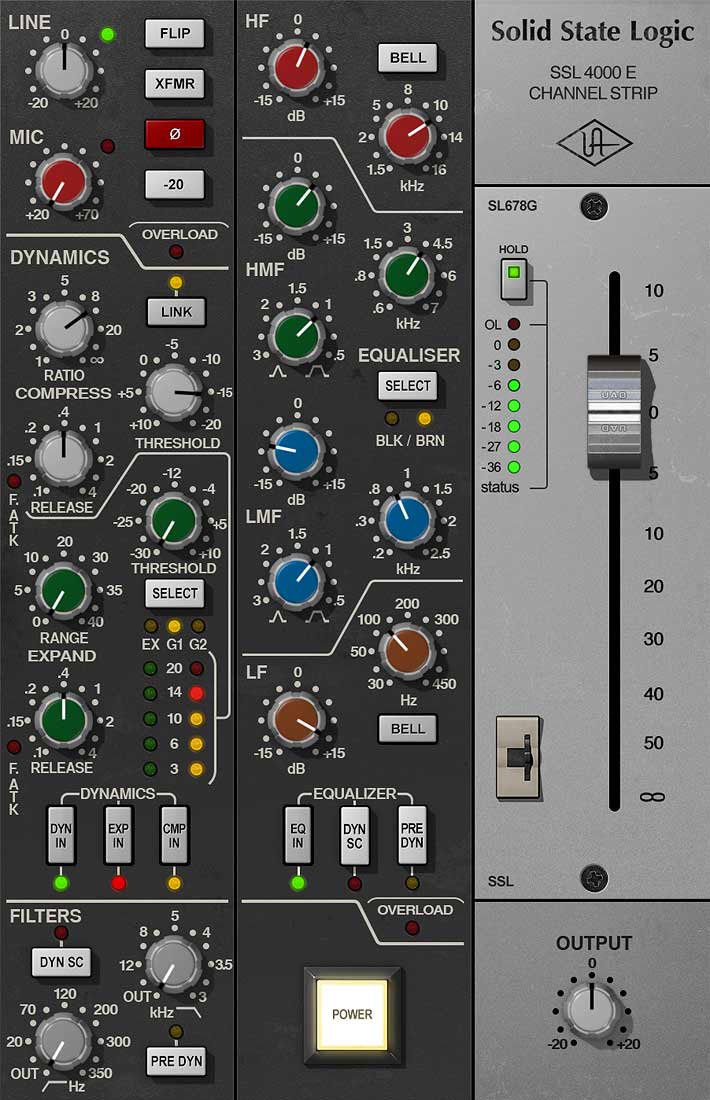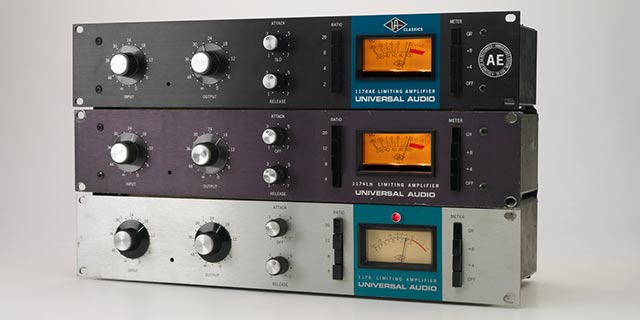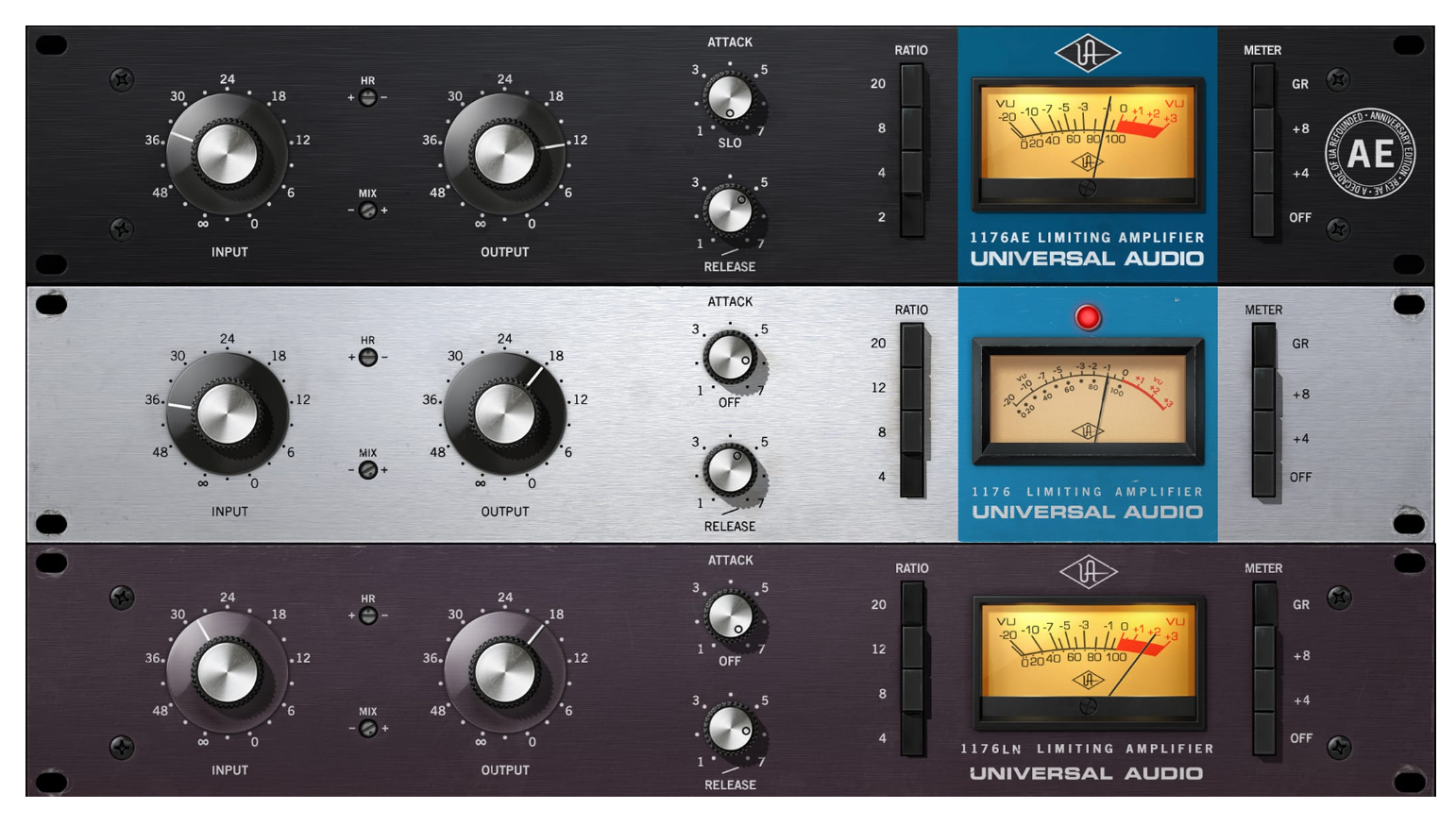
The Vocal Chain Essential: Mastering the UAD 1176 Compressor Collection
The Vocal Chain Essential: Mastering the UAD 1176 Compressor Collection
Forget fleeting trends. When it comes to shaping vocals with authority and character, the Universal Audio 1176 compressor remains a timeless benchmark. It's not just a plugin; it's a legacy, a sound etched into countless iconic records. For young producers eager to refine their vocal production skills, understanding the nuances of the UAD 1176 collection is fundamental to achieving a professional sound. We're cutting straight to the knowledge you need to make your vocals impactful.
Compression is a vital tool for vocal mixing, taming dynamic inconsistencies, adding punch, and bringing your singer to the forefront. While many compressors exist, the 1176 offers a unique sonic signature – a forward, slightly aggressive character that can inject energy and attitude into a performance. The UAD 1176 Collection faithfully emulates this legendary hardware, providing three distinct versions, each with its own sonic flavor.
Compression Fundamentals for Vocal Control
Let's quickly recap the essentials of compression. It acts like an automatic volume control. When the audio signal surpasses a set threshold, the compressor reduces its gain according to a defined ratio. The attack control dictates how rapidly the compression engages, affecting the initial burst of sound. The release control determines how long the gain reduction persists after the signal drops below the threshold. Finally, output gain compensates for the level reduction introduced by compression. Understanding these parameters is crucial for effectively using any compressor, especially the 1176 family.
Exploring the UAD 1176 Collection: Three Distinct Sonic Characters
Universal Audio meticulously recreated three key revisions of the original 1176 hardware, each capturing the unique sonic characteristics of its respective era. Recognizing these distinctions is key to choosing the right tool for your vocal track.
-
1176 Rev A "Bluestripe": The earliest version, the "Bluestripe," is characterized by its assertive and colorful compression. It's the most harmonically rich of the three, imbuing vocals with a noticeable character and attitude. Imagine raw energy and a touch of grit. This model shines on rock, blues, and even more aggressive rap vocals where you want the compression to be a prominent sonic element. Its faster attack times can effectively grab the initial transient of the vocal, making it cut through the mix.
-
1176LN (Rev E) "Blackface": The "Blackface" is arguably the most iconic and widely used iteration. It delivers smoother, more refined compression compared to the Bluestripe while retaining the signature 1176 punch. It's a versatile workhorse suitable for a broad spectrum of vocal styles, from pop and R&B to rock and indie. The "Blackface" is often lauded for its ability to "glue" vocals together, ensuring they sit cohesively within the mix without sounding overly processed. This is often the preferred choice for achieving a polished and professional vocal sound.
-
1176AE "Anniversary Edition": This version introduces a lower 2:1 ratio option, in addition to the standard 4:1, 8:1, and 20:1 settings. This seemingly minor addition offers a significant increase in control for subtle gain reduction and delicate dynamic shaping. The AE is often favored for its transparency and ability to add subtle warmth and body without heavily compressing the vocal. It's an excellent choice for genres where a natural and open vocal sound is desired, or when only gentle compression is needed to manage minor dynamic fluctuations.
Practical Vocal Compression Techniques with the 1176
Let's explore how to effectively utilize these plugins on your vocal tracks. Here are some fundamental techniques:
-
Start with Balanced Settings: When first using the 1176, begin with moderate settings. Try a ratio of 4:1 or 8:1, a medium attack (around the '4' mark on the UAD plugin), and a release time that complements the tempo of your song (experiment until it feels rhythmically appropriate). Aim for a few decibels of gain reduction as a starting point.
-
Develop Critical Listening Skills: The most important aspect of using any compressor is careful listening. Pay close attention to how the 1176 is impacting the vocal's dynamics. Is it smoothing out the louder peaks? Is it adding punch and sustain to the notes? Does it sound overly compressed or unnatural?
-
Mastering Attack and Release: These controls are paramount in shaping the compression's character:
-
Fast Attack: Engages quickly, taming the initial transient and reducing the sharp attack of vocal phrases. This can be beneficial for controlling overly dynamic vocalists or achieving a more contained sound.
-
Slow Attack: Allows the initial transient to pass through before compression engages, emphasizing the punch and impact of the vocal. Great for adding energy and presence.
-
Fast Release: The compressor quickly returns to its inactive state, which can be useful for fast-paced vocals or for creating a "pumping" effect.
-
Slow Release: The compressor's gain reduction lingers for a longer period, suitable for smoother, more sustained vocal passages or for adding a sense of thickness.
-
-
The "All Buttons In" Secret: A well-known technique with the 1176 involves simultaneously engaging all four ratio buttons. This produces a very aggressive, distorted, and heavily compressed sound. While not suitable for every genre, it can be a powerful creative effect on certain vocals, particularly in rock, punk, or industrial contexts. Use this technique judiciously.
-
Exploring Parallel Compression: For a more nuanced approach, consider parallel compression. Send a copy of your vocal signal to an auxiliary track, apply aggressive compression with the 1176 (experiment with different models!), and then subtly blend this processed signal with the original, uncompressed vocal. This allows you to introduce the 1176's characteristic punch and aggression without overly squashing the main vocal's dynamics.
-
Optimizing Gain Staging: Ensure your input signal level is appropriate before it reaches the 1176. Too low a signal might not effectively trigger the compressor, while a signal that's too hot can lead to undesirable distortion.
In Conclusion:
The UAD 1176 Collection is an invaluable asset for vocal production. By understanding the unique qualities of each model and mastering the principles of compression, you can imbue your vocals with character, punch, and a polished finish. Don't hesitate to experiment and develop your own signature vocal sound. With these legendary emulations at your disposal, you're well on your way to achieving professional and compelling vocal mixes.




